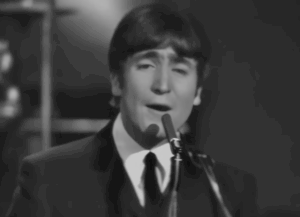10 1980s Famous Songs That Have Tragic Stories

via 80sruledtheworld / Instagram
Although the 1980s produced some of the most memorable tunes ever, not all of them were as humorous as they seemed. There are some quite somber tales behind the synths and sing-alongs, ranging from tragedy and war to addiction and grief. We’re taking a peek into the more sinister undertones of some of the decade’s biggest tunes in this rundown. Featuring artists like U2, Bruce Springsteen, Joy Division, and more, these tracks may just hit you differently after hearing the truth.
“Patience” – Guns N’ Roses (1989)
“Patience” showed a softer side of Guns N’ Roses, trading their usual hard rock chaos for a mellow acoustic ballad. Written during Axl Rose’s rocky relationship with model Erin Everly, the song reflects a moment of calm in an otherwise turbulent love story. Everly, who also inspired “Sweet Child O’ Mine,” married Rose in 1990—but the relationship quickly unraveled, ending in divorce a year later. Axl later admitted things were toxic, saying they “treated each other like crap.” In 1994, Everly filed a lawsuit for emotional and physical abuse, though the case was dismissed. The song may preach patience, but in real life, love isn’t always that simple.
“Every Breath You Take” – The Police (1983)
At first listen, “Every Breath You Take” might sound like a sweet love song—but that’s not what Sting had in mind. Released on Synchronicity, the track is actually about obsession and control. Sting has even said it was inspired by Orwell’s Big Brother—not romance. Lines like “Can’t you see, you belong to me” and “I’ll be watching you” point to something way more unsettling: stalking. It’s been widely misinterpreted, which makes it even more eerie. And it’s not the only Police song with dark undertones—“Can’t Stand Losing You” also tells the story of a man spiraling over rejection. Take the hint, guys—if she’s done, just walk away.
“Hallelujah” – Leonard Cohen (1984)
Sometimes the song’s creation itself contains more grief than the lyrics. It took Leonard Cohen five arduous years and almost 150 drafts to complete “Hallelujah.” Cohen claimed that at one time he was so overcome that he hit his head and scribbled in notebooks while lying on the floor in his underwear. He viewed the song as a means of embracing the chaos of life after initially characterizing it as a declaration of faith. It is as unvarnished, emotional, and contradictory as life itself. Even though it began as a struggle, “Hallelujah” has grown to become Cohen’s most renowned piece, brilliantly combining beauty with grief.
“The Living Years” – Mike + The Mechanics (1988)
A conversation among Mike + The Mechanics members revealed that a number of them had lost their fathers, which is where this heartfelt ballad originated. In “The Living Years,” a son laments the unanswered questions and missed talks following the death of his father. The lyrics, which include the line, “It’s too late when we die, to admit we don’t see eye to eye,” allude to a deeper suffering despite the chorus’s lofty and optimistic sound. For everyone who has lost someone without making amends, the song speaks to their heart. It serves as a poignant reminder to connect with loved ones and speak your truth while you still have the opportunity.
“Suffer Little Children” – The Smiths (1984)
The Smiths weren’t afraid to explore heavy topics, and “Suffer Little Children” is one of their darkest. The song was inspired by the real-life Moors Murders—five children were killed in the early 1960s near Manchester by Myra Hindley and Ian Brady. At the time Morrissey and Johnny Marr wrote the song, only three of the murders had been officially tied to the pair. The victims were later found buried in the bleak Saddleworth Moors. It’s a chilling, mournful track that pays quiet tribute to the young lives lost. With this song, The Smiths proved they could create something hauntingly beautiful while still confronting deeply painful truths head-on.
“Jump” – Van Halen (1983)
“Jump” is one of Van Halen’s most iconic and energetic anthems—full of bold synths, big vocals, and a message that sounds like pure encouragement. But the inspiration behind it? Surprisingly dark. David Lee Roth once shared that the idea came after seeing a news story about someone threatening to jump from a building. He imagined someone in the crowd below shouting, “Go ahead and jump!” While that moment was grim, Roth took the phrase and flipped it into something empowering, thanks to a suggestion from a Van Halen roadie. What started as a tragic scene became a hit song about taking chances and moving forward.
“Love Will Tear Us Apart” – Joy Division (1980)
Ian Curtis, lead singer of Joy Division, was battling a storm of personal struggles when he wrote “Love Will Tear Us Apart.” Between a recent epilepsy diagnosis, a troubled marriage with his wife Deborah, and the pressure of rising fame, Curtis was overwhelmed. The title is often seen as a dark reply to Captain & Tennille’s upbeat “Love Will Keep Us Together.” Unlike that feel-good tune, Curtis’s lyrics paint a bleak, emotional picture of love falling apart. Just a month before the single was released, he tragically took his own life. The song stands as a raw, heartbreaking glimpse into his inner world during one of his darkest moments.
“Born in the U.S.A.” – Bruce Springsteen (1984)
“Born in the U.S.A.” might sound like a patriotic anthem, but it’s actually the opposite. Originally titled Vietnam, the song is a powerful critique of how America treated its veterans after the war. The booming chorus isn’t meant to be a proud chant—it’s a cry of frustration. Inspired by the book Born on the Fourth of July, Springsteen spent time talking with Vietnam vets, and wrote several songs about their struggles. This one just happened to be the loudest—and most misunderstood. It’s not a flag-waving hit; it’s a hard look at the pain and disillusionment so many soldiers came home with.
“Sunday Bloody Sunday” – U2 (1983)
U2’s “Sunday Bloody Sunday” wasn’t just a protest song—it was a powerful reaction to a real tragedy. On January 30, 1972, thousands marched in Derry, Northern Ireland, to protest internment without trial. Though peaceful, the protest was met with violence when British soldiers opened fire, killing 14 unarmed civilians. The event, forever known as Bloody Sunday, shook the nation and became the emotional core of this song. Bono’s intense, almost pleading vocals, paired with stark lyrics, captured the heartbreak and anger of that day. “Sunday Bloody Sunday” became one of U2’s most haunting songs—less about taking sides, and more about calling for peace in the face of chaos.
“99 Luftballons” – Nena (1983)
At first listen, “99 Luftballons” sounds like a fun, upbeat pop tune—but its meaning runs much deeper. The original German version (which the band preferred over the English one) was inspired by two things: guitarist Carlo Karges seeing red balloons floating over West Berlin and wondering what would happen if they drifted into East Berlin, and a news story about U.S. students staging a UFO hoax with 99 balloons. The song tells a story of military forces reacting to a harmless balloon release as a potential threat, leading to unnecessary escalation. Set during the Cold War, it’s a clever, catchy warning about paranoia, miscommunication, and the dangers of overreaction.






















